October 10, 1871, marked the first Election Day after passage of the 15th Amendment and the first time in decades that Black Philadelphians were legally permitted to vote. It was also the day Philadelphia Black educator, baseball player, and civil rights activist Octavius V. Catto was murdered by a white supremacist.
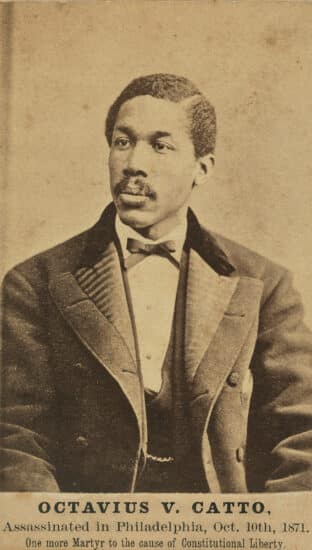
A portrait of Catto via National Portrait Gallery
Throughout the early years of Reconstruction, Catto fought for racial justice across public arenas in the city. He became a leader in Pennsylvania’s State Equal Rights League, organizing with his community for Black suffrage, equal education and opportunities for Black students, and the desegregation of streetcars and baseball leagues.
The end of the 1860s saw significant strides in some of these campaigns. By 1870, Pennsylvania had ratified the 15th Amendment, passed a bill prohibiting segregation on trolley systems, and Catto himself had become the highest paid teacher in Philadelphia.
Catto’s influence and advocacy, however, drew ire from white supremacists in the region, who organized in violent opposition to the civil rights progress of Philadelphia’s Black community.
On Election Day in 1871, Democratic ward leaders launched a series of intimidation tactics to suppress Black suffrage, which turned into rioting against resistant African American voters.
Catto had cast his vote early that morning and learned of the terror in the streets while on a lunch break from teaching. Out of concern for their safety, he sent his students home for the day and found assurance from the mayor that the violence would end without further intervention. One of the anti-Black voting rights vigilantes shot and killed Catto on his walk home that evening.
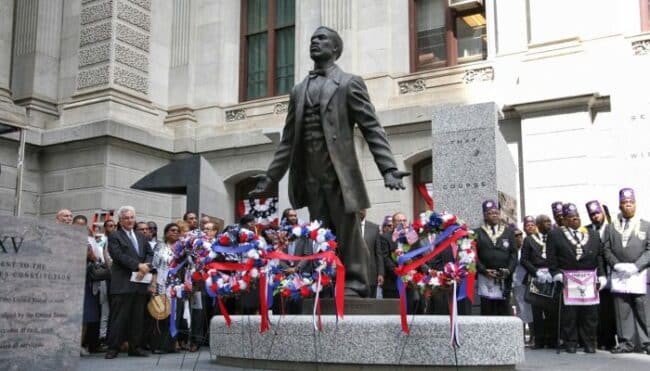
A Quest for Parity: The Octavius V. Catto Memorial via the City of Philadelphia
The aftermath brought the largest funeral procession seen in Philadelphia since President Lincoln’s in 1865, as Catto was laid to rest in Lebanon Cemetery.
Students, politicians, preachers, and thousands of others mourned and eulogized him in Pennsylvania and beyond. Catto’s killer left town and was finally brought to trial in 1877 when a sympathetic all-white jury ruled him not guilty.
In 2017, over 140 years after Catto’s assassination, A Quest for Parity: The Octavius V. Catto Memorial was unveiled at the southwest apron of Philadelphia’s City Hall. Out of approximately 1,500 public sculptures maintained throughout the city, Catto’s is the first ever to honor an individual African American. The memorial includes a 12-foot-tall bronze statue of Catto stepping toward a sculpture of a 19th-century ballot box. The statue is set against a backdrop of granite blocks, which represent an 1860s streetcar.
Learn More
‘The Forgotten Hero’ of the Civil Rights Movement via All Things Considered on NPR
Tasting Freedom: Octavius Catto and the Battle for Equality in Civil War America by Daniel R. Biddle and Murray Dubin
Octavius Catto website hosted by Independence Hall Association
Learn more in the Zinn Education Project national report, “Erasing the Black Freedom Struggle: How State Standards Fail to Teach the Truth About Reconstruction,” and find teaching resources on Reconstruction below.

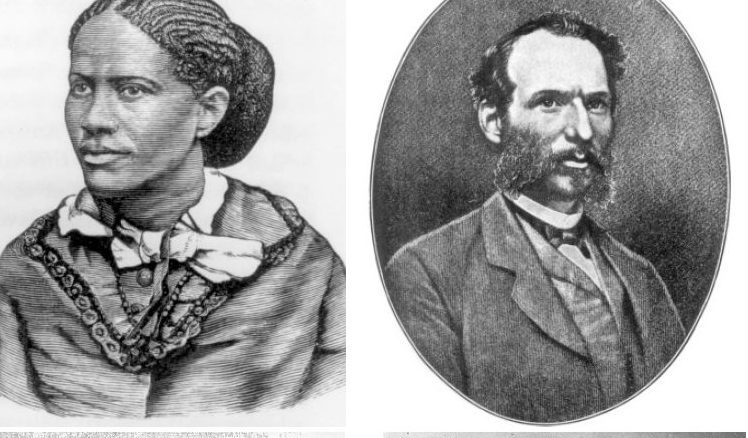
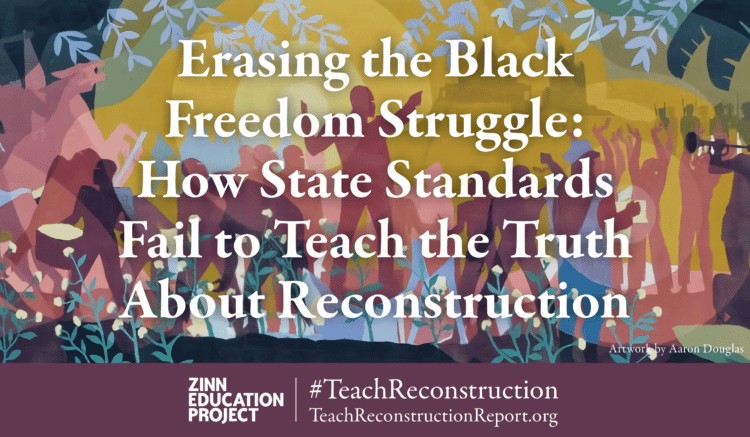
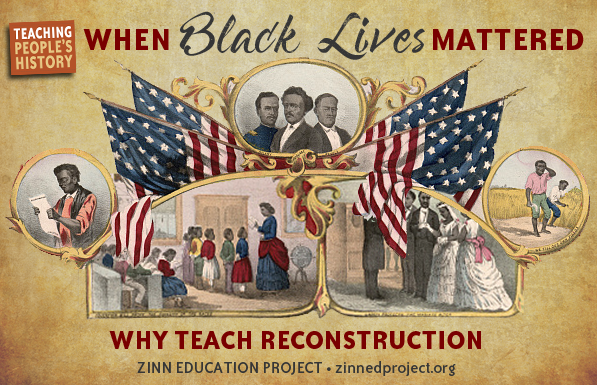
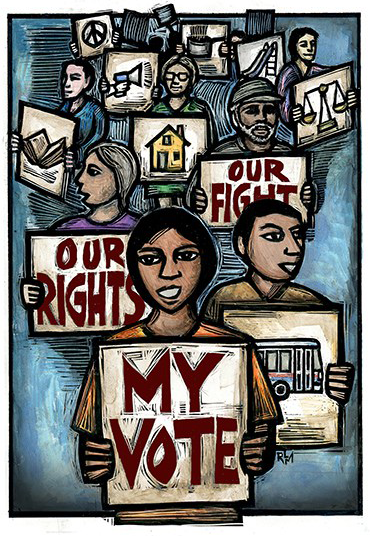
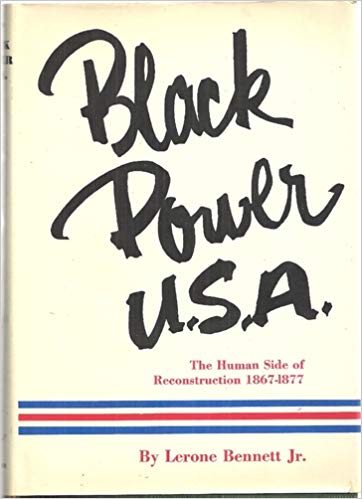
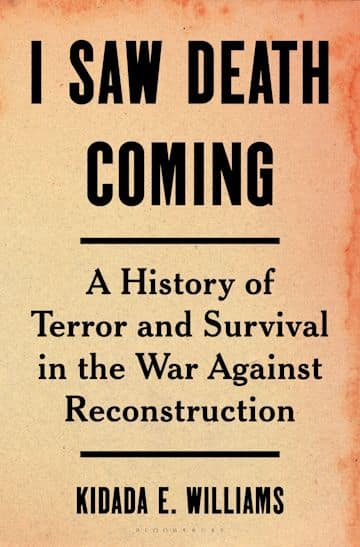
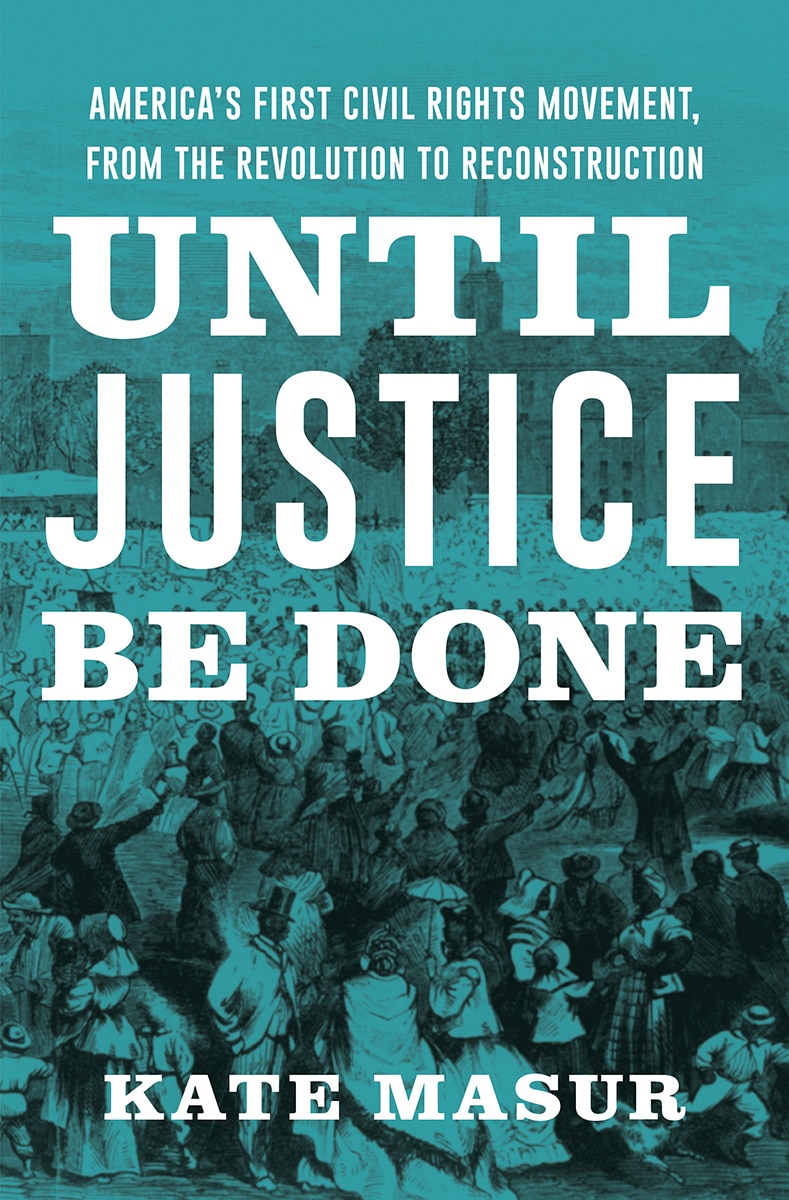
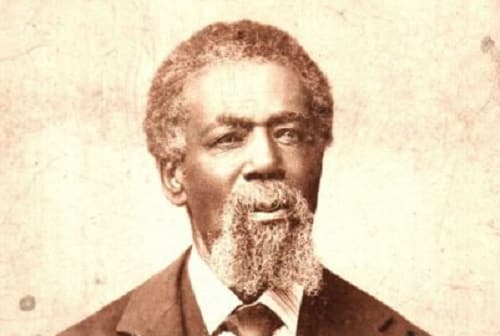
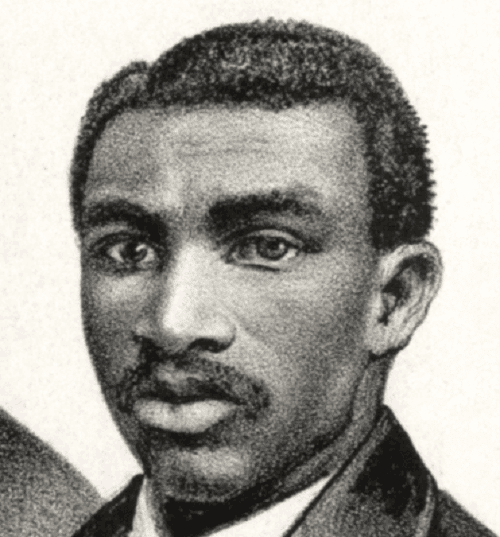





Twitter
Google plus
LinkedIn